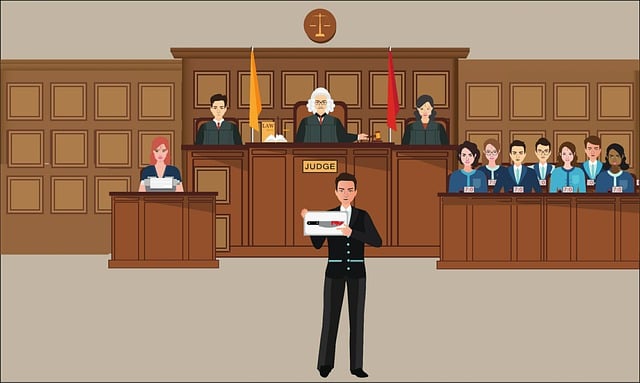Business partner disputes are common due to financial, strategic, or personal issues, often involving contract breaches, IP disputes, and legal matters like white-collar defense. Effective resolution requires understanding the root cause. Alternatives to court litigation include arbitration, offering privacy and quicker resolutions, and mediation, facilitating open communication for tailored solutions. Litigation remains a structured option, with proactive measures like early case assessment or negotiation avoiding costly lawsuits. Out-of-court resolutions are preferred for their efficiency, privacy, and cost savings, requiring careful planning and clear communication to maintain healthy business relationships. "How to Resolve Business Partner Disputes" explores these strategies for successful dispute management.
Navigating business partner disputes can be complex, but understanding the various litigation types offers effective resolutions. This article delves into the common causes of these conflicts, exploring efficient alternatives like arbitration and mediation. We dissect the traditional legal process of litigation, highlighting strategies for businesses. Furthermore, we compare out-of-court resolutions with trials, weighing pros and cons to help you decide on the best approach for resolving business partner disputes.
- Understanding Business Partner Disputes: Common Causes and Types
- Arbitration: An Efficient and Private Alternative to Court
- Mediation: Facilitating Communication and Collaborative Solutions
- Litigation: Legal Process and Strategies for Business Disputes
- Out-of-Court Resolutions vs. Trial: Pros and Cons for Businesses
Understanding Business Partner Disputes: Common Causes and Types

Business partner disputes are a common challenge faced by many companies, often arising from a variety of factors. These conflicts can range from disagreements over financial matters, such as profit distribution or investment decisions, to misaligned strategic visions and even personal tensions among co-founders or key stakeholders. Understanding these dispute causes is the first step in learning how to resolve business partner disputes effectively.
One of the most prevalent types involves breach of contract claims, where a partner alleges a violation of the partnership agreement, such as non-payment or misappropriation of company assets. Additionally, disputes can emerge from disagreements over intellectual property rights, especially when partnerships involve innovative ventures or proprietary technologies. In some cases, partners may find themselves on opposing sides in legal matters related to white collar defense or general criminal defense, which require careful navigation to avoid indictment while resolving the underlying dispute.
Arbitration: An Efficient and Private Alternative to Court

Arbitration offers a compelling alternative to traditional court litigation when it comes to resolving business partner disputes. This private and efficient process allows parties to avoid the time-consuming and costly aspects often associated with jury trials, making it an attractive option for businesses looking to protect their interests. By engaging in arbitration, companies can maintain control over the dispute resolution process, ensuring a quicker resolution than what’s typically seen in courtrooms.
For complex matters involving white collar defense or white collar and economic crimes, arbitration provides a more tailored approach. It allows for specialized arbitrators with expertise in these fields to preside over the hearing, ensuring a deeper understanding of the unique challenges presented. This specialization can lead to more informed decisions, ultimately facilitating a streamlined process that gets to the heart of the dispute without unnecessary delays or legal obstacles commonly encountered in traditional litigation.
Mediation: Facilitating Communication and Collaborative Solutions

Mediation offers a powerful approach to resolving disputes between business partners, acting as a bridge to facilitate open communication and collaborative solutions. This alternative dispute resolution (ADR) method provides a private, controlled environment where both parties can express their perspectives, concerns, and interests. A skilled mediator guides the conversation, helping to identify common goals and potential paths to agreement. By focusing on mutual understanding, mediation allows for creative solutions tailored to the specific needs of the respective business, often resulting in lasting relationships and agreements that meet all parties’ economic interests.
For white-collar and economic crimes cases, mediation can be particularly beneficial, as it encourages a dialogue that might lead to a complete dismissal of all charges or reduced penalties. This is especially important for businesses where preserving partnerships and maintaining a positive reputation are crucial. The collaborative nature of mediation ensures that each side feels heard and respected, fostering an atmosphere conducive to resolving complex disputes amicably.
Litigation: Legal Process and Strategies for Business Disputes

Litigation serves as a legal process for resolving disputes between businesses, offering a structured framework to address conflicts and seek redress. When business partners find themselves at odds, understanding the nuances of litigation becomes paramount. This strategic approach involves meticulous planning, evidence gathering, and navigating complex legal procedures. The ultimate goal is to achieve a complete dismissal of all charges or an outcome favorable to the involved parties.
For effective dispute resolution, businesses can employ various strategies tailored to their unique situations. Engaging in early case assessment enables a proactive stance, potentially averting costly litigation. Alternately, negotiating settlements or utilizing alternative dispute resolution methods like mediation can offer mutually beneficial solutions. However, when negotiations falter, the court becomes the arena for presenting arguments and evidence, with skilled legal counsel playing a pivotal role in guiding businesses through this complex landscape, especially within the context of navigating general criminal defense or addressing issues relevant to philanthropic and political communities.
Out-of-Court Resolutions vs. Trial: Pros and Cons for Businesses

When it comes to resolving business partner disputes, businesses often face a choice between out-of-court resolutions and trial. While a trial offers a public platform for justice and can be beneficial for high-profile cases, it’s not always the most efficient or cost-effective option for businesses. Out-of-court resolutions, such as mediation or arbitration, provide a more private, swift, and mutually agreeable outcome. These alternatives can save businesses significant time and money, which is crucial in today’s fast-paced business environment where agility is key.
For instance, mediation involves an impartial third party who facilitates communication between disputing parties, helping them reach a settlement that meets both sides’ needs. This process is often less formal than a trial, allowing for more flexibility. On the other hand, arbitration is similar to a trial but takes place behind closed doors with a chosen arbitrator deciding the dispute. It offers a quicker resolution and can be tailored to fit the specific needs of corporate and individual clients alike. While general criminal defense strategies may not directly apply here, ensuring successful out-of-court resolutions requires careful planning, clear communication, and a focus on finding common ground—all of which are essential for fostering healthy business relationships in the long run.
Resolving business partner disputes is a crucial aspect of maintaining healthy professional relationships. By understanding the various types of litigation, such as arbitration, mediation, and court-based litigation, businesses can make informed decisions on how to navigate conflicts efficiently and privately. Out-of-court resolutions often offer cost-effectiveness and quicker outcomes compared to trials. Ultimately, choosing the right approach depends on the specific dispute, allowing for a tailored strategy to preserve business interests and foster future collaborations.






